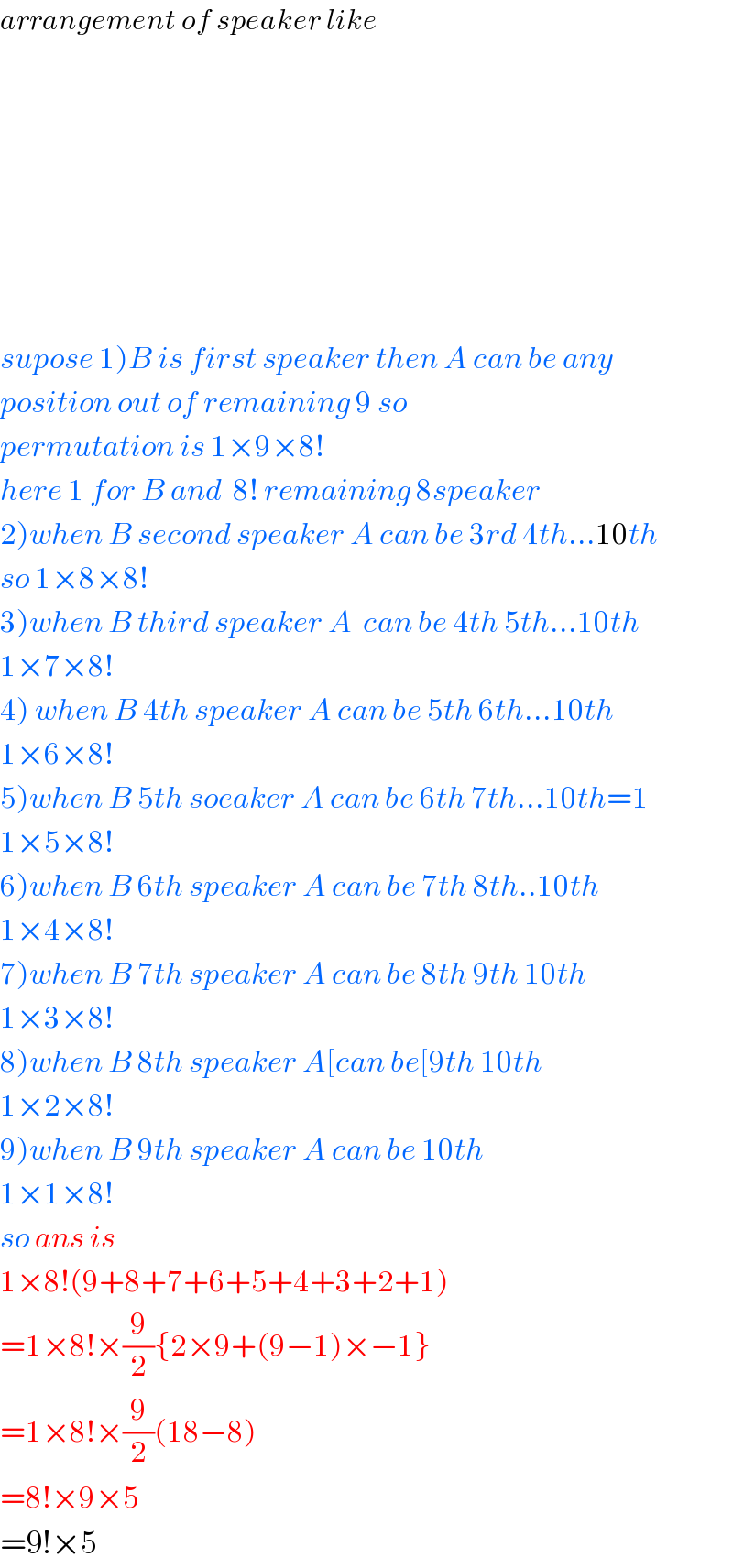
Question and Answers Forum
Previous in Permutation and Combination Next in Permutation and Combination
Question Number 43031 by aseerimad last updated on 06/Sep/18

Commented by MrW3 last updated on 06/Sep/18

Commented by MrW3 last updated on 07/Sep/18
![Explanation: We arrange at first the other 8 speakers, there are 8! ways to do this. There are two methods to arrange the speakers A and B then: method 1: A and B are next to each other. There are 9 possibilities. E.g. XXXXXXBAXX, or XXXXXXXXBA orBAXXXXXXXX. method 2: A and B are separated by at least one of the other 8 people. We can place A and B in 9 possible positions. There are C_2 ^9 ways. E.g. XXBXXXXAXX, or XXXXXXXBXA or BXXXXXXXXA. Thus the result is 8!×(9+C_2 ^9 )=8!×45=5×9! Generally in case of n people: (n−2)!×[(n−1)+C_2 ^(n−1) ] =(n−2)!×[(n−1)+(((n−1)(n−2))/2)] =((n(n−1)(n−2)!)/2) =((n!)/2)](Q43056.png)
Answered by tanmay.chaudhury50@gmail.com last updated on 06/Sep/18

Answered by MrW3 last updated on 06/Sep/18

Commented by ajfour last updated on 07/Sep/18

Commented by tanmay.chaudhury50@gmail.com last updated on 07/Sep/18

Commented by malwaan last updated on 07/Sep/18

